Comprehensive Book Review Summary: Leadership and Management Insights
VerifiedAdded on 2022/11/19
|5
|1120
|320
Report
AI Summary
This report provides a comprehensive summary of a book review on leadership and management. The review covers several key chapters, each addressing crucial aspects of effective leadership. Chapter one focuses on the importance of managers understanding and connecting with their staff to foster motivation and teamwork, crucial for maintaining productivity. Chapter two highlights the need for leaders to have clear vision, purpose, and communication skills to support teamwork and encourage autonomous thinking. Chapter three discusses the challenges of working with experienced individuals, emphasizing the importance of communication and learning from mistakes. Chapter four explores the significance of service systems, particularly in public service, and the need to prioritize employee welfare. Chapter five examines the government's role in setting laws, ensuring individual freedom, and promoting economic development. Finally, chapter six emphasizes the role of values in shaping morals and organizational culture. The review draws on several references to support its analysis, offering valuable insights into leadership and management practices.
1 out of 5
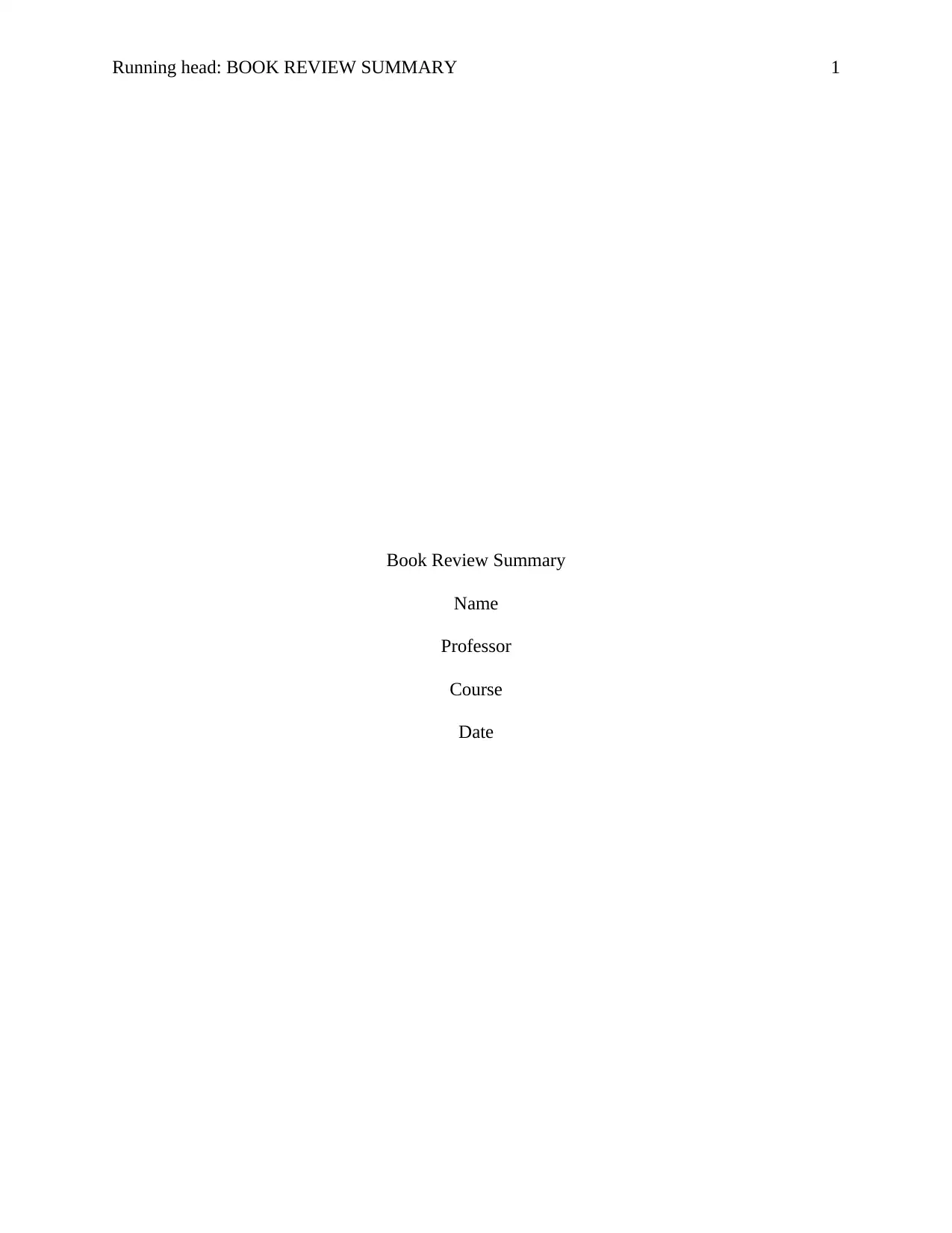
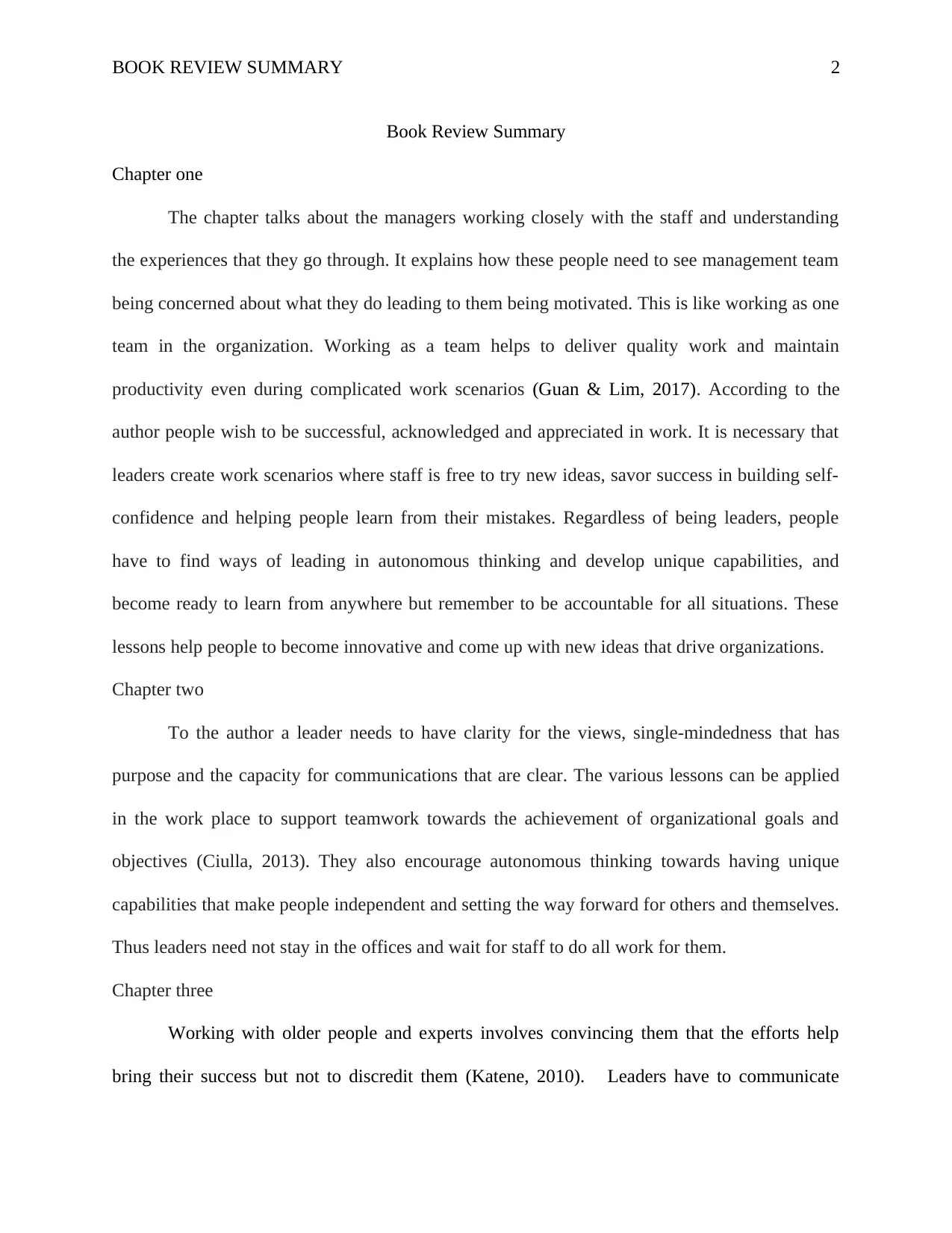
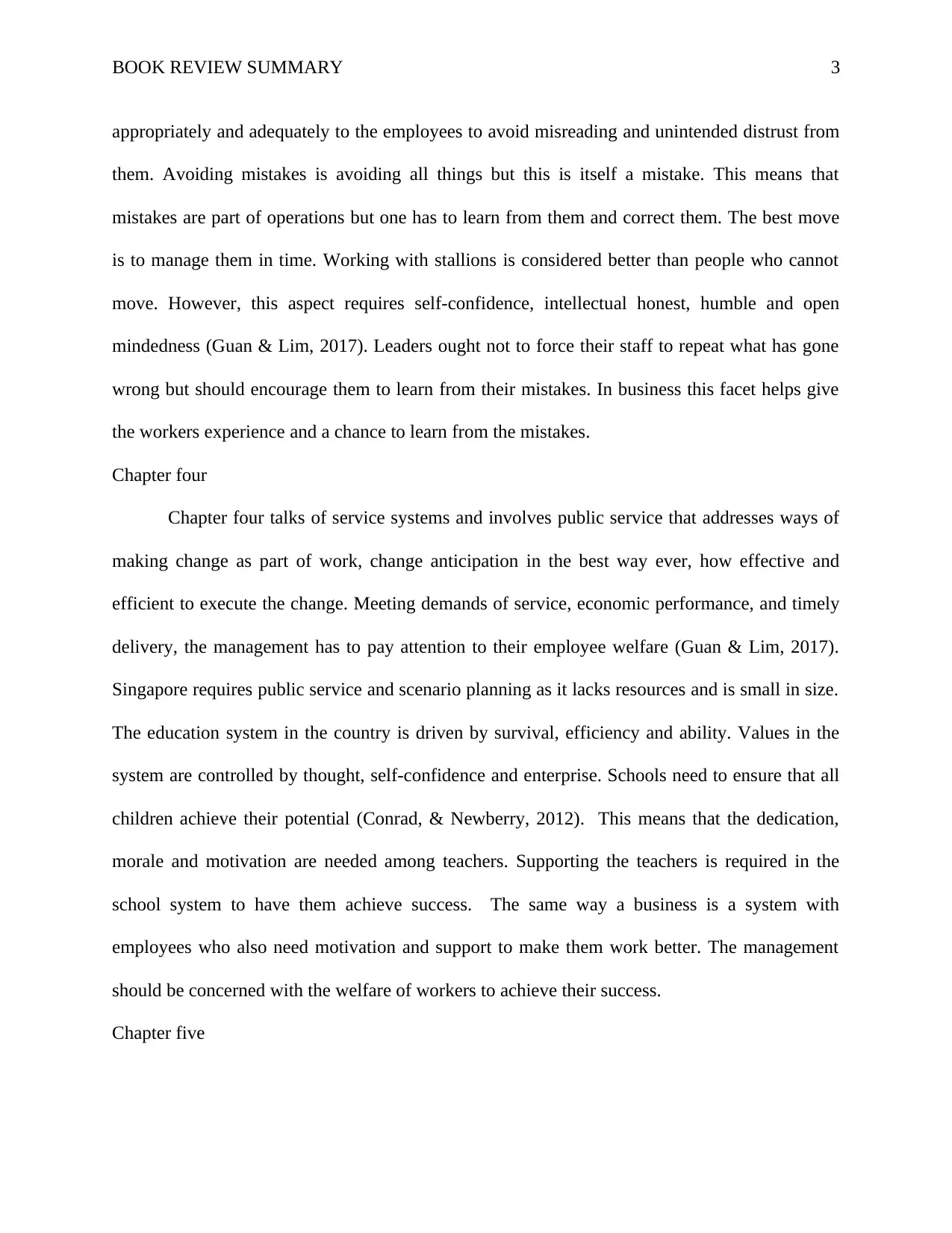

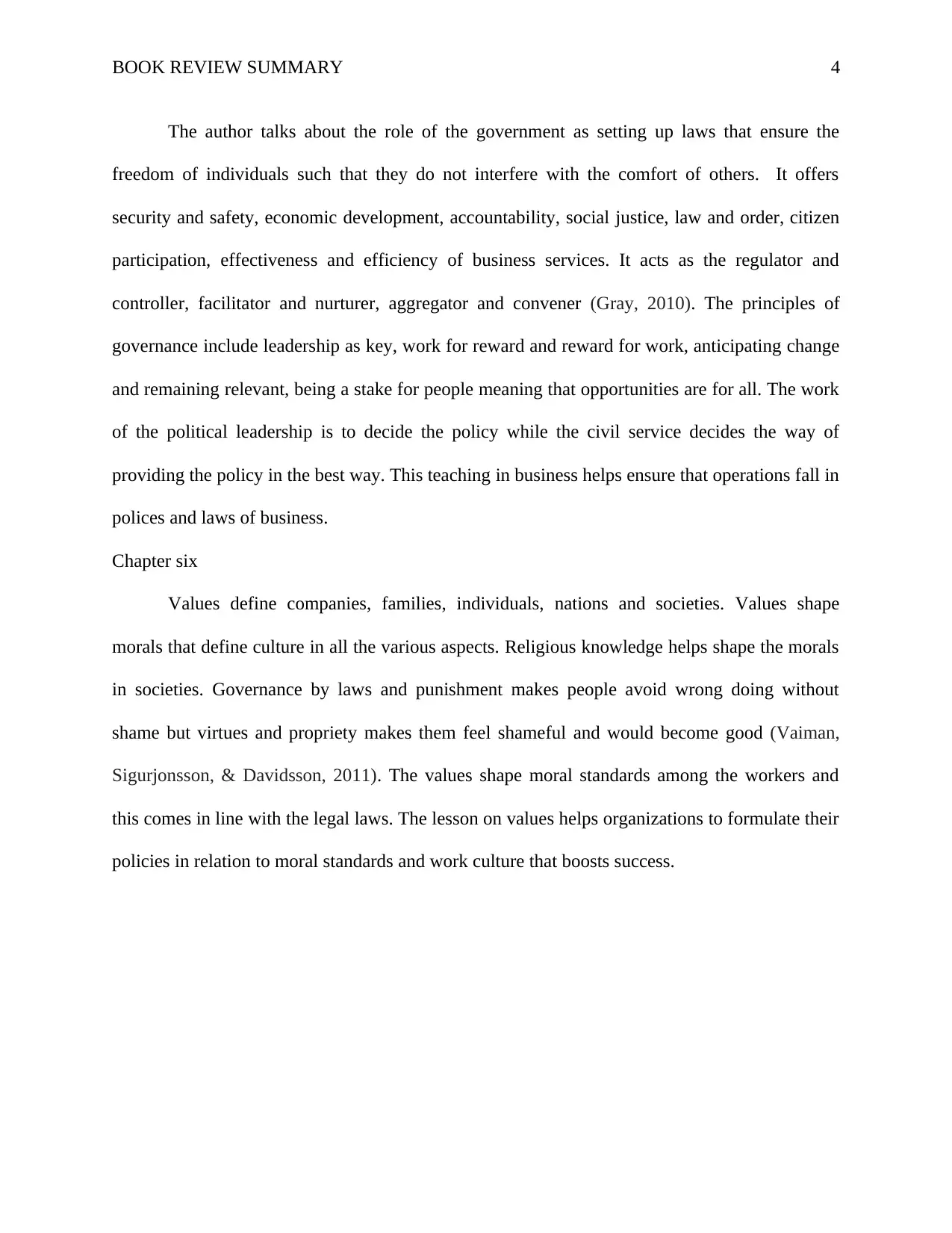
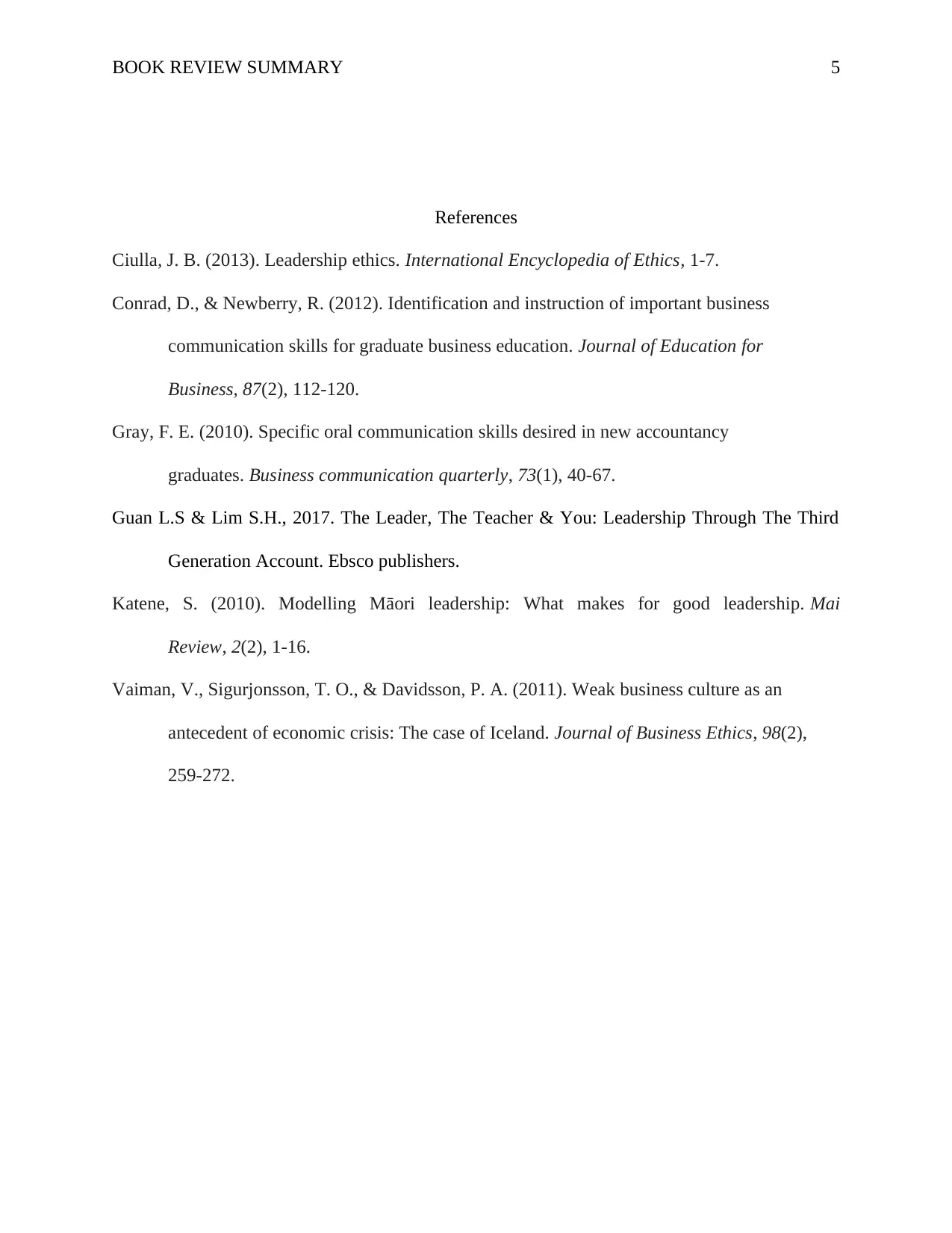






![[object Object]](/_next/static/media/star-bottom.7253800d.svg)